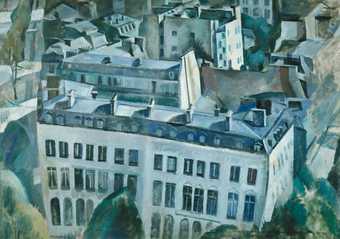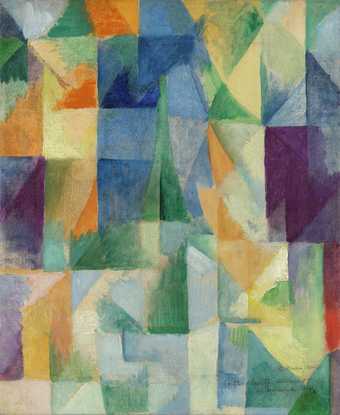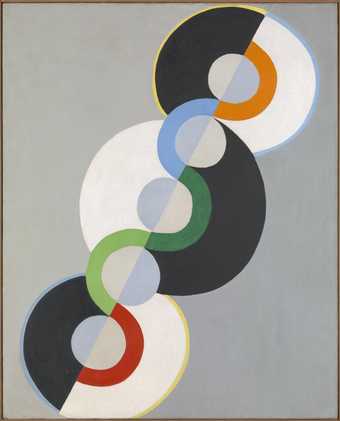Artist biography
French painter, born in Paris. Apprenticed for two years to a theatrical designer, then began to paint. Influenced by Neo-Impressionism 1906-7, afterwards by Cézanne; a friend of Metzinger and the Douanier Rousseau. Series of pictures of 'Saint-Séverin', 'The Eiffel Tower' and 'The City'. Married the painter Sonia Terk in 1910. Exhibited in the Cubist room at the Salon des Indépendants in 1911 with Metzinger, Gleizes, Léger and Le Fauconnier. Started to use pure colours again early in 1912 and at the end of the same year painted his first 'Disc' and 'Circular Forms', his first abstract pictures. First one-man exhibition at the Galeries Barbazanges, Paris, 1912. His work was much admired in Paris by Apollinaire, who gave it the name Orphism, and in Germany by Klee, Macke and Marc. Lived in Spain and Portugal during the First World War; returned to Paris in 1920. After painting various figurative themes such as nude women reading, runners and portraits, he returned in 1930 to complete abstraction and made numerous compositions with circular discs and colour rhythms, sometimes in low relief. Executed with assistants huge panels and coloured reliefs for the Aeronautics pavilion at the 1937 Paris International Exhibition. Died at Montpellier.
Published
in:
Ronald Alley, Catalogue of the Tate Gallery's Collection of Modern Art other than Works by British Artists, Tate Gallery and Sotheby Parke-Bernet, London 1981, p.158
Wikipedia entry
Robert Delaunay (French pronunciation: [ʁɔbɛʁ dəlonɛ]; 12 April 1885 – 25 October 1941) was a French artist of the School of Paris movement; who, with his wife Sonia Delaunay and others, co-founded the Orphism art movement, noted for its use of strong colours and geometric shapes. His later works were more abstract. His key influence related to bold use of colour and a clear love of experimentation with both depth and tone.
This biography is from Wikipedia under an Attribution-ShareAlike Creative Commons License. Spotted a problem? Let us know.
Read full Wikipedia entry



